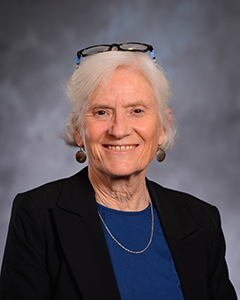By Erik Neumann | JPR

A bill moving through the Oregon legislature could expand locations where prefabricated and manufactured homes can be sited in the state.
Among its provisions, the legislation would prevent cities and counties from imposing optional standards that create obstacles to these homes being built, like the pitch of a roof angle, minimum building size, the presence of a carport or garage, house color or appearance.
“We are stipulating that manufactured homes should simply be held to the same standards that you would apply to any other kind of construction on the ground,” says Rep. Pam Marsh, D-Ashland, the bill’s sponsor.
It would also directly benefit wildfire survivors in Marsh’s district, where manufactured home parks were among the hardest hit communities by 2020′s devastating Almeda Fire. The bill would allow wildfire survivors to use the state’s manufactured home loan program to pay for prefabricated structures and would allow prefab homes to be built within communities explicitly defined as manufactured home parks.
Approximately 2,500 manufactured homes or RVs were destroyed in 18 parks during the Almeda Fire, according to Marsh. Prior to the fire, her Southern Oregon district had more manufactured homes than any other district in the state.
Like many communities in Oregon, the Rogue Valley is in the midst of a housing crisis and manufactured homes served as de facto affordable housing, often for the elderly, Latino families, and low-income residents.
“What we’ve seen as a result of Almeda is the devastation of just wiping out a significant portion of that sector because the people who are most hurt there are our most vulnerable residents,” Marsh says.
The bill is being endorsed by CASA of Oregon, an organization focused on farmworkers and affordable housing development, because it would explicitly allow for more housing types to be added to manufactured home parks.
“Now the Almeda Fire has become the catalyst for expediting that change and getting it done, so that we have more options on the table,” says Rose Ojeda, a senior project manager with CASA of Oregon.
While the proposal has received broad support by legislative House members and a coalition of groups like Oregon AARP, the Housing Alliance and the League of Oregon Cities, it has not been supported unanimously.
Rep. Lily Morgan, R-Grants Pass, is among a contingent of Republican lawmakers who opposed the bill. Morgan says past legislative sessions during the pandemic resulted in dramatic changes to the state’s housing laws. She says lawmakers should wait to see the impact of that legislation before enacting new laws.
“It is a matter of the timing in the short session and just allowing the impact of what we passed in the special session and the long session to take place to see the next phases,” Morgan says. Instead, she says lawmakers should take up the issue in 2023.
HB 4064 was passed by the House of Representatives this week. Its awaiting review by the state Senate.
